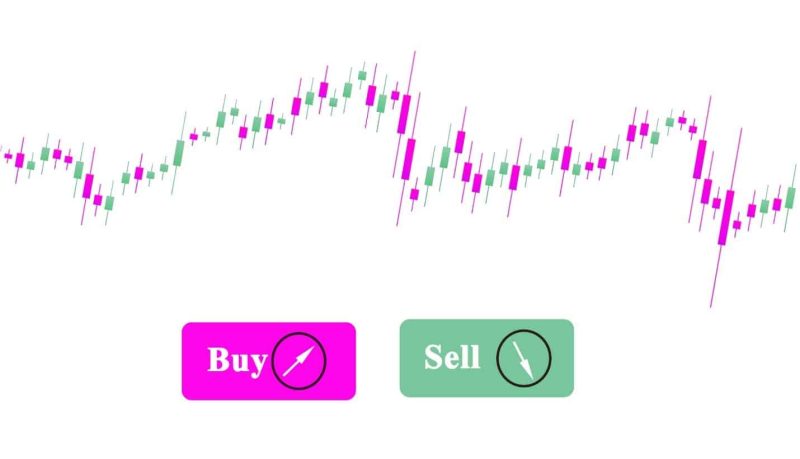
Good Faith Violation happens when you sell a security that you had previously bought, but you haven’t still paid for the initial purchase of the stock with settled funds. There are two types of settled funds, sales proceeds fully paid for securities and cash.
Closing a position before it was paid for with settled funds is a Good Faith Violation. The reason is that prior to the agreed date, no good faith effort was made to deposit cash into the account.
Contents
- Settlement Dates and Funds
- Settled Funds
- Cash Account Proceeds
- What are Margin and Cash Accounts?
- Three Strikes and a Suspension
- Other Types of Violations
- Conclusion
- FAQ
Settlement Dates and Funds
It is crucial to understand how securities are paid for. When a trader purchases or sells a stock, the trade happens momentarily. Your purchased stock will show in the account your brokerage firm has opened for you. But the trade is not settled. The rules of the market make it possible for few days to expire for the deal to be completed.
The settlement date for government securities and options is the following business day. While for bonds and stocks, it is two trading days after the transaction date.
The settlement date is the date when a trade is completed. The buyer has to transfer the funds to the seller. And the seller must give the buyer the security.
Settled Funds
Settled funds are incoming cash and settled sale funds of completely paid for securities. There are no restrictions if your account has sufficient settled funds. You can buy what you want. When you buy a security with settled funds, there is no time limit of when the security can be sold.
Certain restrictions are in place if your balance is from the unsettled sale of securities. Additional securities can be bought with unsettled funds from existing long positions. As long as prior to the settlement date of the original sale, the new purchase is not sold. Because it created funds used to buy the stock. It will be considered a Good Faith Violation if it is sold prior to the settlement date of the original sale without new funds being deposited.

Cash Account Proceeds
Example of how a Good Faith Violation happens. Bobby sells $8.000 worth of Netflix stock on Monday. The next day he buys Amazon stock for $8.000. If Bobby sells the Amazon stock before Wednesday, which is the settlement date for the Netflix stock, then the transaction is a Good Faith Violation. The reason for this is that he sold the Amazon stock before he had the funds to realize the purchase.
We can take another example if Michael’s account is $2,000 minus from unsettled activity. Minus the sum of $800 from a sale of stock on Thursday it’s important to know that the trade settles on Tuesday.
On Monday Michael purchases $2600 of Apple stock. A good faith violation will occur if on the same day he sells the stock. Simply because the stock is not fully paid, because the $800 proceeds are not enough funds until they are processed on Tuesday.
Suppose Richard has a settled balance of $1,000. He buys $1,000 of Disney stock on Thursday. Few hours after the purchase he sells the stock for $2,000. But at the closing of the market, Richard buys $400 of Reuters stock.
In this scenario, no Good Faith Violation has happened. Richard had the necessary funds to buy the Disney stock. The problem would have happened if he sold the Reuters stock before being paid. If that happened good faith violation would have happened.
What are Margin and Cash Accounts?
When trading stocks you need to open an account with an online broker. Chose a reputable broker who can give you two options: cash or margin accounts.
With a cash account, you can only trade with the money you have at your disposal. You can’t have your broker loan you money. If you have $2,000, you can purchase a stock that is worth $2,000. You cannot use the stocks as a guaranty to borrow more money from your broker.
A cash account limits your buying potential, but the advantage, if you are an active trader, is that you prevent losses.
With a margin account, you can borrow money from your broker. This gives you bigger buying power than a cash account. This way you have more maneuver to make bigger trades and make more profits.
Three Strikes and a Suspension
Your broker needs to inform you if a good faith violation has happened. He will warn you that if you do it again for two more times, than there will be sanctions. Your account will be restricted by your broker for a period of 90 days if you make three violations in a year.
Interestingly the violations are counted on a daily basis, and not as separate transactions. If you made several for example on Friday, they are counted as one.
Before making a trade, you can purchase stocks if you have cash in the account. You need to know that you are using settled funds to buy stocks. Secondary option to stay away from any problems is to wait for a three trading days before you sell the stock.
Other Types of Violations
There are two more types of violations Free riding violation and Cash liquidation. When you purchase a security that is paid with the funds you received from selling the security, that you are performing Freeriding Violation. Let’s say Mark doesn’t have money to trade. He buys ABC stock for $6000 on Monday, but he doesn’t pay immediately. Mark sells the stock on Thursday for $7000 and pays for the initial purchase on Wednesday.
The Freeriding violation has occurred because the ABC stock was paid with funds from the sale of the same stock. Your account will be restricted if you make one Freeriding Violation in a year.
You will be able to purchase assets if you have settled cash in the account before the. This restriction will be in place for 90 days. Cash Liquidation Violation occurs when you buy assets and cover the expense of that purchase by selling fully paid securities.
This is a violation because the brokerage insists you have settled cash in your account to cover purchases on the settlement date. The example of the hypothetical trader William incurs a Cash Liquidation Violation. He doesn’t have available cash for trade. On Monday he purchases $8000 of ABC stock. He sells it for 9000 other stock he owns and pays for the ABS stock on Wednesday.
This s a Cash Liquidation Violation. The ABC purchase was settled on Wednesday, and Williams’s account doesn’t have sufficient cash to pay for the purchase. The sale of his other stock will be settled on Thursday. If in a year you incur 3 cash liquidations, your account will be restricted.
Conclusion
Stock trades need to have settled funds in order not to be fined with a Good Faith Violations. It’s recommended to be patient and trade the stock after three days. Restricting trading to settled funds can reduce the potential of a good faith violations.
You need to be careful of the trade date of a given transaction. Follow pattern day trading rules and have sufficient funds. Every Monday morning make sure you have good cash balances and enough settled funds. Trade with fully settled funds.
When you buy securities that you plan to sell, wait few business days, consult your brokerage firm on the local laws. When trading online you have the speed to move assets quickly, but remember that you need to do it within the rules. It is good investment advice to deposit additional cash. Having additional cash help you stay clear from problems. You have to have your options settle before buying other securities.
FAQ
What does a Good Faith Violation mean?
Good faith violation is when you buy a stock and sell it before having settled the money you used to buy it. There is no effort to replace the needed funds before the settlement date.
How bad is a Good Faith Violation?
When you make three Good Faith Violations in a year, before your account will be suspended. There is an unusual loophole, if you make several Good Faith Violations in a day, they will count as one and not the actual number you made.
How long does a Good Faith Violation last?
You need to wait for three days for the money for the previous transaction to settle. By waiting this period you will not be incurring a Good Faith Violation.
Can you trade with unsettled funds?
In a day trade, unsettled funds cannot be used. If you buy stocks with unsettled funds, you will have to wait two trading days, before you can sell the position.



